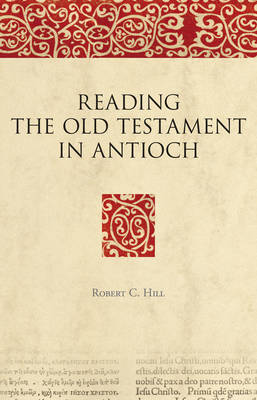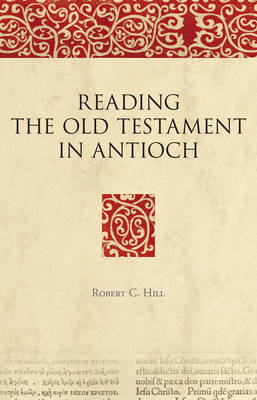
- Afhalen na 1 uur in een winkel met voorraad
- Gratis thuislevering in België vanaf € 30
- Ruim aanbod met 7 miljoen producten
- Afhalen na 1 uur in een winkel met voorraad
- Gratis thuislevering in België vanaf € 30
- Ruim aanbod met 7 miljoen producten
Zoeken
Omschrijving
In the period between the councils of Nicea and Chalcedon in the fourth and fifth centuries, the faithful in the churches of the ecclesiastical district of Antioch were the beneficiaries of the ministry of the Word from distinguished pastors.
Included in this ministry were homilies on the Old Testament by John Chrysostom and written commentaries by his mentor Diodore and his fellow student Theodore, and later by Theodoret. Though the biblical text was admittedly Jewish in origin, "the text and the meaning are ours," claimed Chrysostom; and the great bulk of extant remains reveals the pastoral priority given to this often obscure material.
Students and exegetes of the Old Testament and its individual authors and books will be introduced here to Antioch¹s distinctive approach and interpretation by commentators reading their local form of the Greek Bible.
In the course of this survey, readers will gain an insight also into Antioch¹s worldview and its approach to the person of Jesus, to soteriology, morality and spirituality.
Included in this ministry were homilies on the Old Testament by John Chrysostom and written commentaries by his mentor Diodore and his fellow student Theodore, and later by Theodoret. Though the biblical text was admittedly Jewish in origin, "the text and the meaning are ours," claimed Chrysostom; and the great bulk of extant remains reveals the pastoral priority given to this often obscure material.
Students and exegetes of the Old Testament and its individual authors and books will be introduced here to Antioch¹s distinctive approach and interpretation by commentators reading their local form of the Greek Bible.
In the course of this survey, readers will gain an insight also into Antioch¹s worldview and its approach to the person of Jesus, to soteriology, morality and spirituality.
Specificaties
Betrokkenen
- Auteur(s):
- Uitgeverij:
Inhoud
- Aantal bladzijden:
- 220
- Taal:
- Engels
- Reeks:
- Reeksnummer:
- nr. 5
Eigenschappen
- Productcode (EAN):
- 9789004145382
- Verschijningsdatum:
- 16/08/2005
- Uitvoering:
- Hardcover
- Formaat:
- Genaaid
- Afmetingen:
- 164 mm x 246 mm
- Gewicht:
- 562 g

Alleen bij Standaard Boekhandel
+ 509 punten op je klantenkaart van Standaard Boekhandel
Beoordelingen
We publiceren alleen reviews die voldoen aan de voorwaarden voor reviews. Bekijk onze voorwaarden voor reviews.








